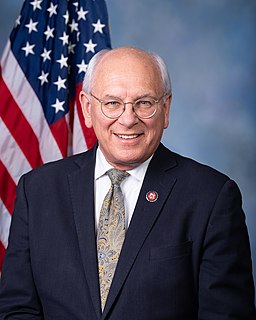A Quote by Scott Garrett
A dramatic spending increase to fund the SEC and the CFTC, as envisioned by the authors of the Dodd-Frank legislation, would further the mindset that our nation's problems can be solved with more spending, not more efficiency.
Related Quotes
Whether government finances its added spending by increasing taxes, by borrowing, or by inflating the currency, the added spending will be offset by reduced private spending. Furthermore, private spending is generally more efficient than the government spending that would replace it because people act more carefully when they spend their own money than when they spend other people's money.
Sometimes, tax rate increases create the very problems that the spending is intended to cure. In other words, the tax rate increases reduce economic growth; they shrink the pie; they cause more poverty, more despair, more unemployment, which are all things government is trying to alleviate with spending.
The greatest threat facing America today
is the disastrous fiscal policies of our own government,
marked by shameless deficit spending and
Federal Reserve currency devaluation.
It is this one-two punch -
Congress spending more than it can tax or borrow,
and the Fed printing money to make up the difference -
that threatens to impoverish us by further
destroying the value of our dollars.
There is only so much energy available to us in life. Spending it on solving problems is one possible way of living your life, but this may leave you empty - hearted; spending it on what excites you is a lot more fulfilling and fun - and effortless; and usually, the previously experienced problems vanish on their own. We don't have to battle against the darkness when all we need to do is turn on the light.































